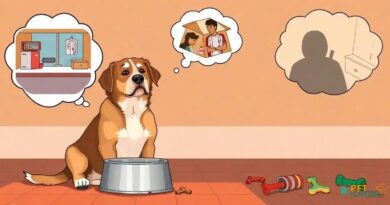What is maus hábitos
What is maus hábitos in Dogs?
Maus hábitos, or bad habits, in dogs refer to behaviors that can be detrimental to their well-being and the harmony of the household. These habits can manifest in various forms, including excessive barking, chewing on furniture, or even aggressive tendencies. Understanding what constitutes maus hábitos is crucial for dog owners who wish to foster a positive environment for their pets and themselves.
Common Examples of Maus Hábitos
Some common maus hábitos in dogs include digging, jumping on people, and stealing food. These behaviors often stem from boredom, anxiety, or a lack of proper training. Identifying these habits early on can help owners implement corrective measures before they become ingrained in the dog’s routine.
The Impact of Maus Hábitos on Dogs
Maus hábitos can significantly affect a dog’s quality of life. For instance, a dog that barks excessively may be expressing anxiety or frustration, which can lead to stress for both the dog and its owner. Additionally, these habits can strain relationships with neighbors and other pets, making it essential to address them promptly.
How Maus Hábitos Develop
Understanding how maus hábitos develop is key to prevention. Often, these behaviors arise from a lack of mental stimulation or physical exercise. Dogs are naturally active and curious creatures; when their needs are not met, they may resort to undesirable behaviors as a way to cope with their environment.
Training to Correct Maus Hábitos
Training is one of the most effective ways to correct maus hábitos. Positive reinforcement techniques, such as rewarding good behavior with treats or praise, can encourage dogs to adopt more desirable habits. Consistency is vital; owners must be patient and persistent in their training efforts to see lasting results.
The Role of Socialization in Preventing Maus Hábitos
Socialization plays a crucial role in preventing maus hábitos. Exposing dogs to various environments, people, and other animals can help them learn appropriate behaviors and reduce anxiety. A well-socialized dog is less likely to develop bad habits, as they become more comfortable in different situations.
Identifying Triggers for Maus Hábitos
Identifying triggers that lead to maus hábitos is essential for effective management. Owners should observe their dogs closely to determine what situations or stimuli provoke undesirable behaviors. Once these triggers are identified, strategies can be implemented to mitigate their effects and promote better behavior.
Seeking Professional Help for Maus Hábitos
In some cases, maus hábitos may require professional intervention. Dog trainers or behaviorists can provide valuable insights and tailored strategies to address specific issues. Seeking help from a professional can be particularly beneficial for more severe behaviors, such as aggression or extreme anxiety.
Maintaining a Positive Environment to Reduce Maus Hábitos
Creating a positive and enriching environment is essential for reducing maus hábitos. Providing toys, regular exercise, and mental stimulation can keep dogs engaged and satisfied. A happy dog is less likely to develop bad habits, making it crucial for owners to prioritize their pet’s overall well-being.



